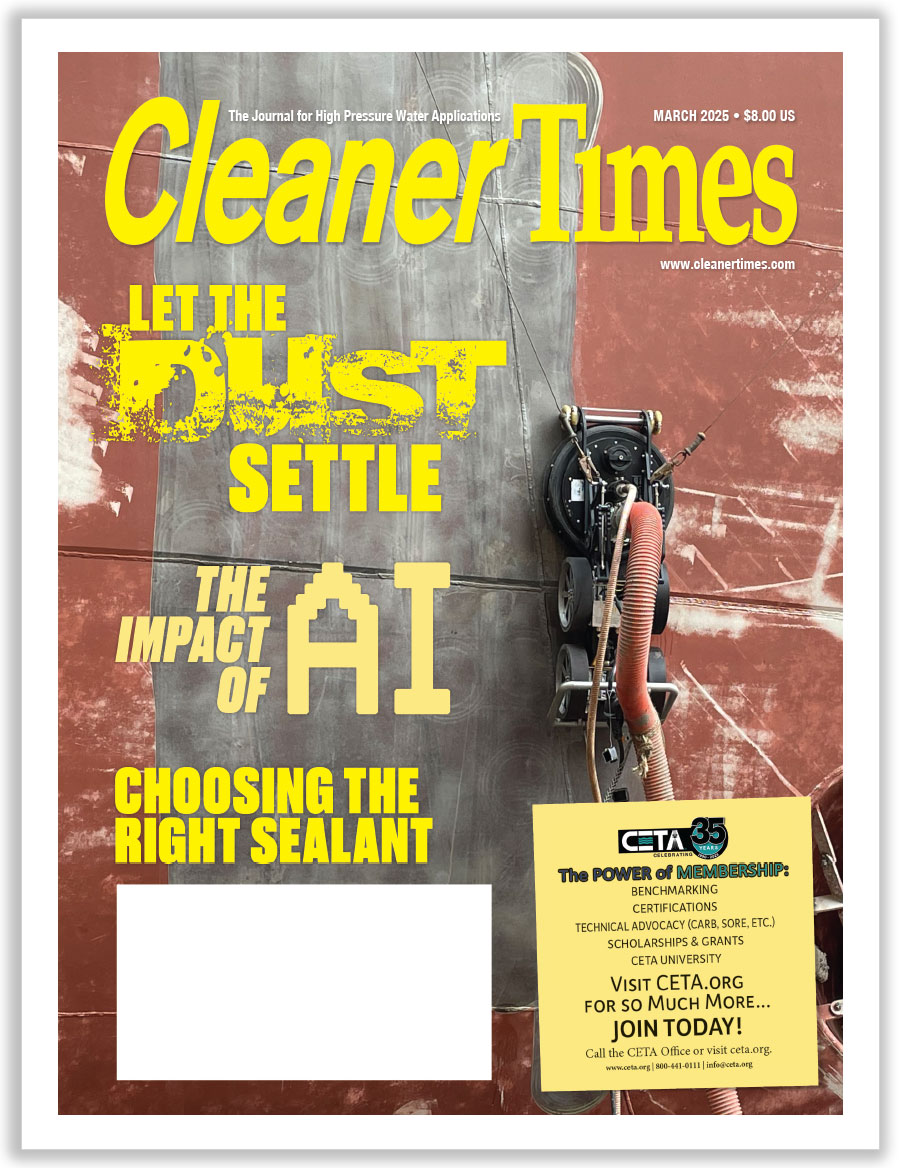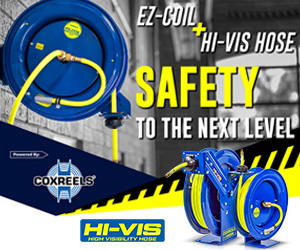
Adding Auto Detailing to Your Services
What You Need to Know
By Diane M. Calabrese / Published May 2023

Wash, restore, and detail.
Routine car washes are the rule. Restoration—an auto rebuilt from the chassis up—is the exception. In between, there’s auto detailing.
Detailing extends the life of the exterior paint and trim, the interior, and even the tires and wheels. It refurbishes.
Is auto detailing a service that a contractor should consider adding? Perhaps. There’s a general note of caution. We spoke to one contractor who had to subtract (instead of add) after purchasing a business. The reason was because it was too difficult to find employees.
Yet the caution only makes it imperative that a contractor understands the commitment detailing takes. We get some great perspective from Josh Lee, a manager in the auto detailing division of Atlantic Pressure Washers (Linthicum Heights, MD), which is the sole importer of products from Kränzle. The products are distributed across the United States primarily to dealers who cater to the auto detailing industry.
The would-be auto detailer should be able to answer some questions. “The first question I ask customers who are getting into auto detailing is whether their service is going to simply wash cars or if it’s going to provide a thorough detail,” says Lee.
The thorough detail includes ceramic coatings, paint corrections, interiors, etc. says Lee. There’s a “big difference” between detailing and washing.
“Fleet and auto washing is a service that can easily be added to a contractor’s list of services,” says Lee. “Formal auto detailing is much more involved and may not easily integrate into the services that are offered by a pressure washing or cleaning contractor.”
Consider the requirements of space, for example. “The equipment and products used by a seasoned mobile auto detailing specialist will more than fill up an entire service vehicle,” says Lee. “Therefore, a mobile detailing rig should be dedicated specifically to auto detailing services.”
As with any prospective service, assess regional needs. “We sell detailing supplies to professionals across the country, so the next most important inquiry to ask is, where is the professional’s geographic location along with the location of the clients that he/she will service?” says Lee.
The regional assessment provides essential information of many sorts, explains Lee. That information in-cludes how large a truck and system can be used by the contractor.
Size constraints may “impact the types of products that are used and services that are provided,” says Lee. “Additionally, climate change legislation, which is constantly changing, will also impact the type of equipment and products the contractor can use.”
Understand the distinction between being a professional auto detailer and someone who enjoys auto detailing. Enthusiasm is not enough.
“Many people attempt to enter the auto detailing sector simply because they consider themselves a car enthusiast,” says Lee. “However, the level of ‘attention to detail’ is far higher in the auto detailing industry than any other pressure washer-related field.”
Precision effort is an integral part of detailing. “The great auto detailers find enjoyment in the cumbersome tasks of very thoroughly cleaning every nook and cranny,” says Lee.
Education, with commitment to it, is a must. “Training and certifications in specialty processes like paint correction, color protection, scratch removal, headlight restoration, interior restoration, air sanitation, etc. are also essential,” says Lee.
To be sure, washing is involved in detailing, and steam cleaning [see related article on page 26] can be a huge assist. But detailing goes far beyond cleaning.
“Washing vehicle exteriors is such a small part of the auto detailing process that it’s paramount to become trained in those additional services,” says Lee. “Simply washing the exterior of a vehicle doesn’t make you an auto detailer.”
There are two questions that Lee recommends a contractor considering the addition of auto detailing ask: “Are you trying to start your own cleaning business because you want to work for yourself doing something enjoyable?
Or are you a car junkie who can’t stop thinking about upgrades to your favorite ride, but not until you get that little scratch off of your bumper?”
It’s called detailing for a reason, after all. “Obsession over minute details is a good trait for an auto detailer,” says Lee. “If your personal car is dirty, or your work vehicle is a mess, then you probably won’t enjoy the demands of the auto detailing industry.”
Resolve
It’s not that there’s a devil in the details, but as Lee tells us, there’s much to assess before adding detailing as a service.
Most power washing contractors already have the basic equipment they will need to begin detailing. The International Detailing Association (the-ida.com) in Roseville, MN, gives advice for start-ups.
The IDA lists “essential equipment” for a beginning detailer: pressure washer, hot water extractor, dry vapor steamer, rotary polisher, wet/dry vacuum cleaners, and various sizes of dual-action polishers. There’s nothing on the list that’s unfamiliar to a power washing contractor.
Also familiar to members of our industry will be the reiteration of the importance of complying with all PPE [personal protective equipment] requirements. Some efforts in detailing may put contractors in contact with chemicals that should not be used without respiratory protection (masks and in some situations respirators).
Safety, storage, and SDS [safety data sheets] that are integral parts of chemical use, and which power washing contractors know well, all come into play. That gives a power washing con-tractor who is already appropriately trained and certified a good foundation.
Deciding to enter the detailing sector means doing a serious time and cost analysis. For instance, what’s the cost
of a ceramic tire dressing? Will an employee be skilled enough to apply the dressing and obtain excellent results?
To do a serious self-appraisal, a contractor ought to review an automobile from chrome on headlights to chrome on taillights. Note down everything that will need attention in a detailing project and figure out what will be required to accomplish the task. Appraise the inside of the car, too. Include everything, including door pockets.
And there’s a special tip from Yujin Yoo Anderson, general manager of Steamericas in Gardena, CA: Good water is the key to good outcomes.
“Invest in a water filtering system,” says Anderson emphatically. “While spot-free water has become popular, not everyone spends money on good water that can protect your equipment and save so much in chemicals and your time.”
Anderson, who shares her insight into trends in the car wash industry in a separate article, stresses how important “good water” is. “Whether it be a water softening system, DI [deionized] water, or RO [reverse osmosis] water that fits your needs best,” add the system to the equipment roster.
Detailing gets attention from the EPA [Environmental Protection Agency] for environmental impact, the Department of Labor (DOL) for fair wages, and DOL’s OSHA [Occupational Safety and Health Administration] for employee health and safety. NIOSH [National Institute for Occupational Safety and Health], which is part of the CDC, also gets involved.
The intensity with which the federal entities set expectations for detailers may vary by state, but some universal regulations should be noted. Start with the EPA’s NESHAP [National Emission Standards for Hazardous Air Pollutants].
NESHAP grew out of the Clean Air Act (CAA). EPA wants to push industries to find “cost-effective alternatives” to an array of toxic chemical compounds and elements. That’s the reason for reporting requirements about the amounts of the chemicals used by businesses.
A power washing contractor may take on responsibility for more reporting requirements if detailing is added. (Much depends on the volume of the monitored substances being used.)
If a detailer becomes involved with spray applications of coatings that contain certain elements
(e.g., chromium, lead, manganese, nickel, or cadmium), NESHAP may apply. There’s a threshold trigger for compliance and reporting, and a detailer who only sprays a regulated coating once a year will probably remain below it.
But as a detailing operation grows and more efforts involve some removal or application of coatings, NESHAP will be in the picture. The emission standard details how coatings are to be applied (e.g., high-volume low-pressure spray gun) and ventilation requirements (including use of spray booths with filtering capability).
One way to stay clear of NESHAP rules is to choose coatings that do not contain the elements within its domain. Again, though, training not only in techniques but also in regulations should precede a leap into detailing. Training is the surest way to be compliant from the start.
DOL looks at detailing from the perspective of labor standards. It might seem like a good arrangement to allow an employee to work at his or her own pace when detailing a car, agreeing to pay the worker for a set number of hours. That’s not possible when the worker is an employee of the company.
Is it possible to use an independent contractor arrangement for those who do detailing? It’s tricky. In some states (e.g., California) it’s not an option. In other states it may be. Explore this with an accountant.
There’s OSHA and state OSHA. In some states (e.g., Massachusetts), employees who use respirators must be medically evaluated and respirators evaluated for proper fit.
Is detailing for every power washing contractor? No. For some? Absolutely. Pay attention to the details and get going.






